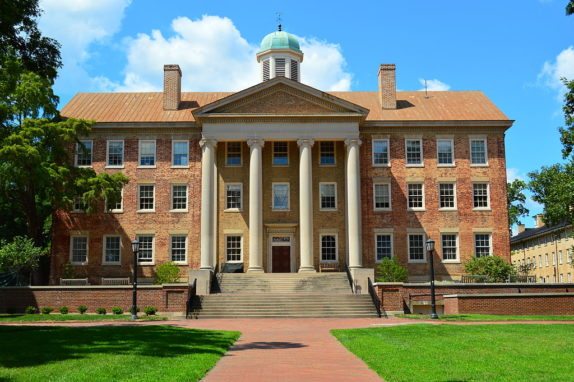
April 23, 2017; SFGate.com
Litigation has been a critical and much-used tactic in resisting President Trump’s policies at the federal level in the last few months, so it is certainly no surprise that progressive legal entities might find themselves under fire by conservatives, especially when they are somewhat iconic.
Theodore Shaw, director of the Center for Civil Rights at the University of North Carolina School of Law, led Barack Obama’s transition team for civil rights at the Department of Justice. Now, the 16-year-old Center is under attack by conservatives on the state’s board of governors, who want to prohibit the center from filing lawsuits on behalf of poor and disenfranchised populations.
While lawsuits are only one part of its work, it is one of the center’s mainstay strategies for pursuing change in recalcitrant systems. Here’s what the center does:
The UNC Center for Civil Rights is committed to the advancement of civil rights and social justice, especially in the American South. It fosters empirical and analytical research, sponsors student inquiry and activities and convenes faculty, visiting scholars, policy advocates and practicing attorneys to confront legal and social issues of greatest concern to racial and ethnic minorities, to the poor and to other potential beneficiaries of civil rights advances. The Center’s work focuses on education, housing and community development, economic justice and voting rights.
Those who would like to eliminate the center’s courtroom work says that it strays from the education mission of the country’s oldest public university. University of North Carolina at Chapel Hill law professor Gene Nichol disagrees and calls the proposal “strictly, certainly and undoubtedly ideological.”
Sign up for our free newsletters
Subscribe to NPQ's newsletters to have our top stories delivered directly to your inbox.
By signing up, you agree to our privacy policy and terms of use, and to receive messages from NPQ and our partners.
Board member Steve Long said the center must refocus on its education mission, and “one of the things you say no to is public interest law firms.” He added, “free enterprise, civil rights, protection of children’s rights—whatever the cause it doesn’t matter. Are you going to stay on mission as an educational institution or not?”
The same board closed Nichols’ UNC’s Center on Poverty, Work and Opportunity two years ago.
Presumably, Long feels that involving students in cases that protect people against discrimination is devoid of educational value. The Center for Civil Rights has specialized in fighting social, economic, and racial discrimination on behalf of individuals and organizations in North Carolina who would often otherwise be too poor to pay for the representation.
“The folks pushing this are opposed to the nature of the advocacy that the center does and the issues that people we represent are fighting for,” said Mark Dorosin, the center’s managing attorney.
Again, as with the threats to defund the Legal Services Corporation and similar efforts to deconstruct our litigation capabilities, other nonprofits should resist actively.—Ruth McCambridge











